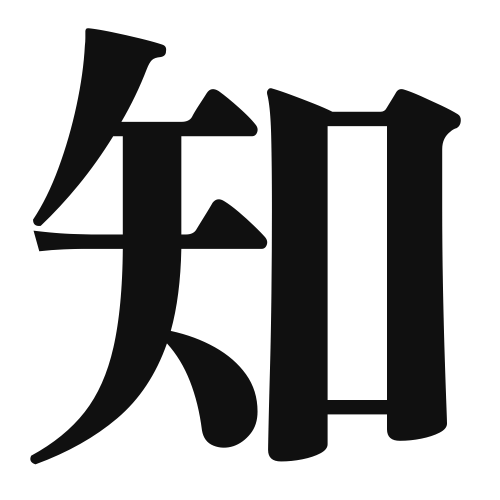1. Overview of Meaning
The kanji 知 (pronounced “chi” in Japanese) means “to know” or “knowledge.” It represents the concept of understanding, awareness, and cognition.
2. Formation and Radical
Formation of the Kanji: The kanji 知 is a phonetic-ideographic character (形声文字). It combines the radical for “to know” with the phonetic component that suggests its pronunciation.
Radical: The radical for 知 is 知 itself, which relates to knowledge and understanding.
3. Examples of Usage
Common Words and Phrases: Some frequently used words that include 知 are:
- 知識 (chishiki) – knowledge
- 知人 (chijin) – acquaintance
- 知恵 (chie) – wisdom
Example Sentences in Daily Conversation:
- 彼は多くの知識を持っています。
(Kare wa ooku no chishiki o motteimasu.) – He has a lot of knowledge. - 彼女は知恵を使って問題を解決しました。
(Kanojo wa chie o tsukatte mondai o kaiketsu shimashita.) – She solved the problem using her wisdom.
4. Synonyms and Antonyms
Similar Kanji: A similar kanji is 理解 (rikai), which means “understanding.” While both relate to knowledge, 知 emphasizes the possession of knowledge, whereas 理解 focuses on comprehension.
Antonyms: An antonym of 知 is 無知 (muchi), which means “ignorance.” This term represents a lack of knowledge or awareness.
5. Cultural and Historical Background
Relation to Japanese Culture: The concept of knowledge is highly valued in Japanese culture, often associated with education and wisdom. The kanji 知 appears in various cultural contexts, emphasizing the importance of learning.
Proverbs and Idioms: One common proverb is 知恵は力 (chie wa chikara), which translates to “Wisdom is power.” This highlights the belief that knowledge and wisdom can lead to strength and success.
